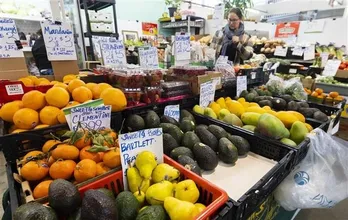
The number of locally-assembled vehicles has annually risen 10 percent in the period 2015-18, reaching 250,000 units in 2018 (Photo: VNA)
Hosted by the Central Institute for Economic Management (CIEM), experts discussed solutions to complete tax policies and financial support to boost the development of the industry of automobile and auto parts.
According to CIEM deputy head Nguyen Thi Tue Anh, the production of automobile and auto parts is one of six key industries of Vietnam.
She said it was needed to clarify the situation, inadequacies and limitations in the implementation of policies as well as proposing solutions while motivating businesses to develop.
Statistics from the Ministry of Industry and Trade shows the country’s automobile business has grown rapidly in recent years. The number of locally-assembled vehicles has annually risen 10 percent in the period 2015-18, reaching 250,000 units in 2018.
Weak production is one of the reasons the industry failed to cope with the competition on tax cuts, which was eliminated for cars from ASEAN countries last year.
After nearly 20 years of development, there are only segments of passenger cars and trucks meeting local targets of localization rate (local part supply) at 20 percent and 45 percent, respectively.
In terms of car with less than nine seats, the localization rate reached an average of 7-10 percent, much lower than the set figure. The locally-produced products are simple such as tires, seats, mirrors and batteries. Meanwhile, the localization rate of countries in the region has reached an average of 70 percent, even 80 percent in Thailand.
Nguyen Trung Hieu, head of the Policy Department under the Vietnam Automobile Manufacturers Association (VAMA), said that by the end of 2018, the country had 358 automobile-related manufacturing enterprises with 50 automobiles assembling units, 45 enterprises producing chassis, bodies and trunks and 214 auto parts.
This figure is much lower than other countries in the region such as Malaysia and Thailand, he said.
Hieu added that domestic support industry enterprises have good capacity in some areas such as molds, bicycle and motorbike components and standard mechanical components.
The automobile industry is about 20 years behind countries in the region such as Thailand and Indonesia, so there should be special policies to encourage businesses to make breakthroughs, Hieu said.
Nguyen Thi Hai Binh, an expert from the finance ministry’s Institute of Financial Strategy and Policy, said it is necessary to focus on studying and planning policies to encourage businesses.
Binh also proposed to exempt special consumption tax on domestically-produced goods, which are not imported from foreign countries, in addition to incentives relevant to land and credit to develop automobile manufacturing complexes in the chain.
According to Deputy Chairwoman of Vietnam Association of Supporting Industries Truong Thi Chi Binh, it needed to give more credit incentives to help support industry firms raise competitiveness, like the fund for small and medium enterprises that have given priority to manufacturing and supporting industry firms./.
VNA
 Retailer brings Vietnamese products closer to consumers in Canada
Retailer brings Vietnamese products closer to consumers in Canada



